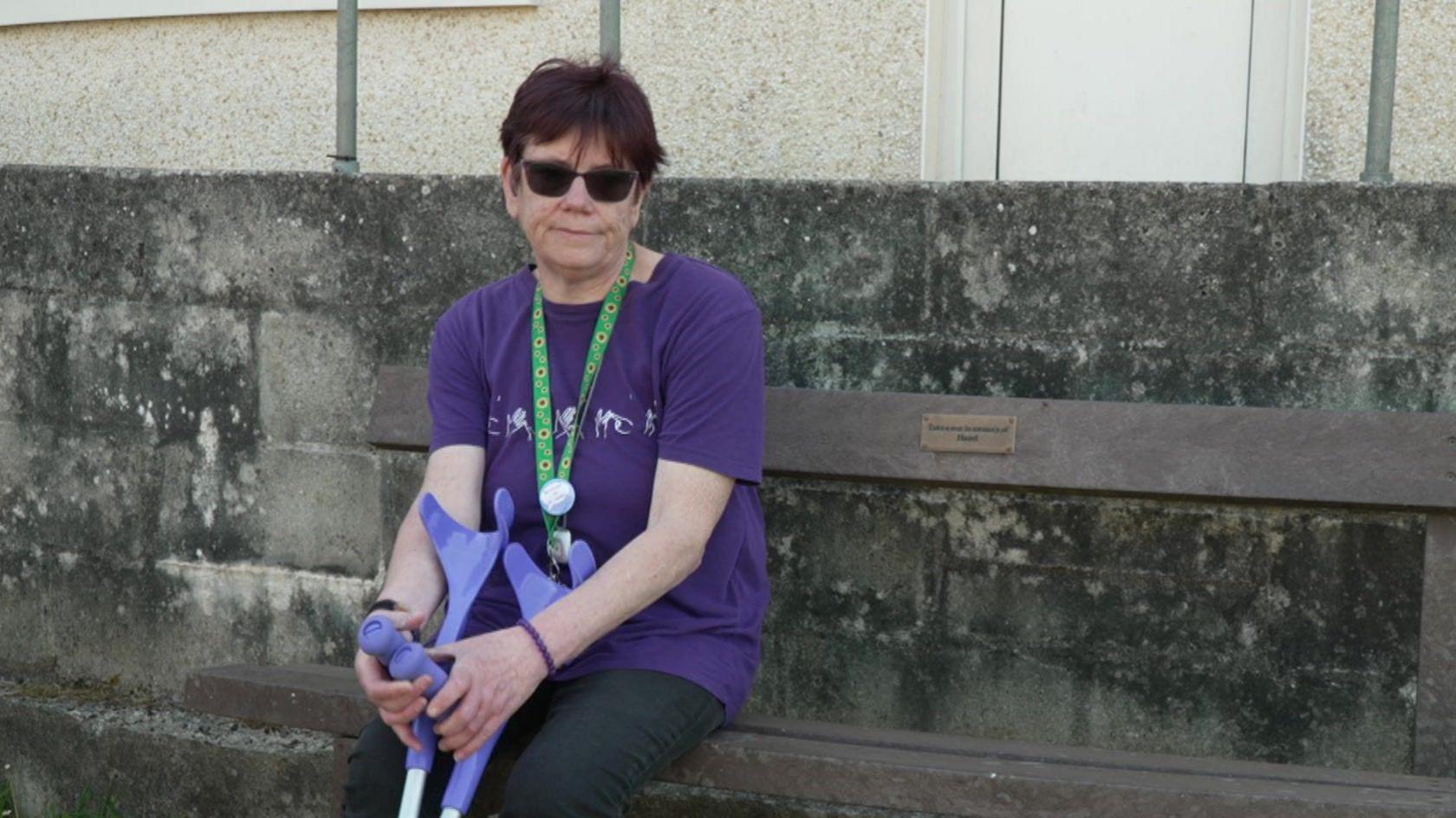Woman scared to leave home due to drug shortages

Julie Cooper said a shortage of her medication meant she was having more epileptic seizures
- Published
A woman who lost her daughter to epilepsy and has not been able to get her own medication for the condition for more than six months has said she is "too scared" to leave her home.
Julie Cooper, 54, from Camborne, Cornwall, said she had been having more epileptic seizures due to a shortage of her medication Tegretol.
"I've hardly been going out, it's quite upsetting," she said, adding: "I know there's a shortage of a lot of medications, but for me it's quite hard."
The Department of Health and Social Care said it had taken "swift action to improve the supply of epilepsy medications".
It said there were shortages for other conditions due to "supply issues" and "we expect further improvements in the coming months".

Ms Cooper's daughter Hazel died from Sudden Unexpected Death in Epilepsy
Ms Cooper said she was diagnosed with epilepsy, a condition affecting the brain and causing frequent seizures, when she was 16.
Her daughter Hazel Cooper died aged 17 from Sudden Unexpected Death in Epilepsy in 2007.
Ms Cooper said: "She hadn't got up for college and normally we'd be fighting for the bathroom.
"It's been very hard."
She said she was concerned about going to sleep because of what happened to her daughter.
"I've been quite worried about it, in case my son had to find me," she said.
Ms Cooper said she would usually take four pills of Tegretol a day and had experienced a shortfall of 800 in six months.
"Some days I hardly leave my chair in the front room because I'm too scared to go anywhere, or fall when I'm on my own," she said.
'Knock-on effect'
Rebekah Smith, deputy CEO of Epilepsy Action, said she had seen a "massive rise in calls" to the charity's helpline due to the shortages.
"There's a continual shortage and it varies a lot with the types of medication so we're having to get updates continually to make sure we know what's going on," she said.
Ms Smith said epilepsy was a "really complicated set of medication" for some people.
"Often it's taken years to get the right combination to reduce seizures or eliminate seizures," she said.
"It often includes a number of different medications, it's not just one thing that's the same the whole time.
"Any changes to that can create seizures in people - at best it's anxiety-inducing, which in itself is an issue for people with epilepsy but at worst it's life-threatening."
She said some of the side effects of not taking medication could mean people have life-threatening seizures.
"It could mean having a seizure after being seizure-free for years, which could have a massive knock-on effect on other aspects of a person's life, such as their ability to drive, or their job," she added.
'Fragile' supply chains
A new report by the Nuffield Trust said Brexit "has not caused the recent spike in medicine shortages", but added it was "likely to significantly weaken the UK’s ability to respond to them by splitting it from European supply chains, authorisations and collective efforts to respond to shortages".
Mark Dayan, the trust's Brexit programme lead, said: “We know many of the problems are global and relate to fragile chains of imports from Asia, squeezed by Covid-19 shutdowns, inflation and global instability."
A survey of 1,491 people by Epilepsy Action in partnership with other charities found 73% of respondents in the South West had experienced stress or anxiety due to medication shortages, which was 2% more than the UK average.
Shortages are 'distressing'
The Department of Health and Social Care said shortages "can be distressing" and advised patients to speak to their clinician if they are worried.
In response to a shortage in other medications, it said "supply issues can arise for a wide range of reasons" and "are not specific to the UK".
"Our priority is to mitigate risks posed by those issues and to help ensure that patients continue to get the treatments they need," it said.
"Thankfully most issues can be managed with minimal impact to patients."
Follow BBC Cornwall on X (formerly Twitter), external, Facebook, external and Instagram, external. Send your story ideas to spotlight@bbc.co.uk, external.